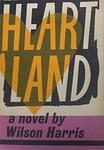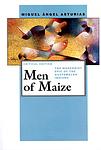The Greatest Latin American "Allegorical" Books of All Time
Click to learn how this list is calculated.
Genres
Allegorical books are a genre of literature that use symbolic characters, events, and settings to convey a deeper meaning or message. These stories often have a moral or philosophical lesson that is meant to be interpreted by the reader. Allegories can be found in many different types of literature, including novels, short stories, and poetry. They are a powerful tool for exploring complex ideas and emotions, and can be used to comment on social, political, or religious issues. Overall, allegorical books are a thought-provoking and engaging genre that challenges readers to think critically and reflect on the world around them.
Date Range
Reading Statistics
Click the button below to see how many of these books you've read!
Download
If you're interested in downloading this list as a CSV file for use in a spreadsheet application, you can easily do so by clicking the button below. Please note that to ensure a manageable file size and faster download, the CSV will include details for only the first 500 books.
Download-
1. One Hundred Years of Solitude by Gabriel García Márquez
This novel is a multi-generational saga that focuses on the Buendía family, who founded the fictional town of Macondo. It explores themes of love, loss, family, and the cyclical nature of history. The story is filled with magical realism, blending the supernatural with the ordinary, as it chronicles the family's experiences, including civil war, marriages, births, and deaths. The book is renowned for its narrative style and its exploration of solitude, fate, and the inevitability of repetition in history.
-
2. The Posthumous Memoirs of Bras Cubas by Machado de Assis
The novel is a unique and satirical work, narrated by a dead man, Bras Cubas, who recounts his life from beyond the grave. The story is filled with ironic humor and philosophical musings as Bras Cubas explores his past, his relationships, and the societal norms of his time. The narrative breaks conventional storytelling norms, often addressing the reader directly and jumping through time without warning. Themes of love, wealth, power, and the human condition are explored, providing a critique of 19th-century Brazilian society.
-
3. The Passion According to G.H. by Clarice Lispector
"The Passion According to G.H." is a philosophical novel that delves into the existential crisis of a wealthy Brazilian woman who, after killing a cockroach in her maid's room, experiences a profound metaphysical crisis. The narrative unfolds as a stream of consciousness that explores themes of identity, existence, and the nature of reality. The protagonist's journey forces her to confront her own humanity, the concept of nothingness, and the chaotic, interconnected nature of life. It's a profound and introspective exploration of the human condition and the meaning of existence.
-
4. The Autumn of the Patriarch by Gabriel García Márquez
The novel explores the life of an eternal dictator who has ruled over a Caribbean nation for several decades. The patriarch's oppressive regime is marked by corruption, violence, and absurdity, while his personal life is characterized by loneliness and paranoia. The narrative is a complex, non-linear exploration of power, time, and the dehumanizing effects of political tyranny. The patriarch's death prompts a reflection on his life and reign, revealing a mythical, magical, and horrifying reality.
-
5. The President by Miguel Angel Asturias
The novel in question is a gripping political drama set in an unnamed Latin American country, where a ruthless dictator wields absolute power. The narrative delves into the dark and corrupt world of political machinations following the assassination of a colonel, which triggers a series of events that expose the brutal and oppressive regime. Through the eyes of various characters, including the paranoid president, the falsely accused, and the oppressed citizens, the story explores themes of power, fear, and injustice, painting a vivid picture of a society under the thumb of a tyrannical leader. The book is a powerful critique of dictatorship and a poignant exploration of the human cost of absolute power.
-
6. Palace of the Peacock by Wilson Harris
The novel follows a crew of men on a dangerous journey up the Amazon River to find a lost tribe. Led by a domineering, half-indigenous foreman, the crew grapples with the harsh realities of the jungle, their own pasts, and the blurred lines between dreams and reality. As they venture deeper into the wilderness, they are forced to confront their own mortality, the violent legacy of colonialism, and the spectral presence of a beautiful, mysterious woman who seems to embody the spirit of the Amazon itself.
-
7. The Censors by Luisa Valenzuela
"The Censors" is a satirical short story that delves into the life of a man who takes a job as a censor at a government agency in an attempt to intercept and approve his own letter, which he had previously sent abroad. As he becomes increasingly absorbed in his role, he starts to censor letters with zeal, losing sight of his original purpose. The story serves as a cautionary tale about the corrupting influence of power and the ease with which one can become complicit in oppressive systems, ultimately leading to a grim and ironic conclusion where the protagonist falls victim to the very system he sought to manipulate.
-
8. The Impenetrable Madam X by Griselda Gambaro
"The Impenetrable Madam X" is a provocative play that delves into the complexities of human relationships and societal expectations. Set against a backdrop of surrealism and absurdity, the narrative follows the titular character, a woman shrouded in mystery and power, who interacts with various other characters in a series of disjointed scenes. Through sharp dialogue and symbolic interactions, the play explores themes of identity, power dynamics, and the struggle for understanding within the confines of a world that oscillates between the real and the fantastical. The work challenges audiences to question the nature of reality and the masks people wear in their daily lives.
-
9. Heartland by Wilson Harris
"Heartland" is a novel that delves into the complexities of human consciousness and the interplay between reality and imagination. Set against a backdrop that blends elements of South American landscapes with mythological dimensions, the narrative follows a protagonist who embarks on a transformative journey. Throughout this journey, the character encounters various figures and experiences that challenge his perceptions of identity, time, and existence. The book is known for its dense, poetic prose and its exploration of themes such as colonialism, cultural heritage, and the nature of artistic creation, all of which contribute to its reputation as a challenging but rewarding read.
-
10. The Obscene Bird Of Night by José Donoso
This novel is a labyrinthine exploration of identity, madness, and the nature of reality, told through the fragmented narrative of a reclusive man who has lived his life in seclusion on a decrepit estate. As the protagonist delves into his past, he recounts his experiences among the deformed and the destitute, the aristocracy and the servants, while grappling with his own fears and illusions. The narrative weaves a tapestry of grotesque imagery, mythological allusions, and a collapsing social order, challenging the reader to distinguish between truth and fabrication in a world where the boundaries of sanity are blurred.
-
11. Men Of Maize by Miguel Angel Asturias
The book is a magical realist novel that delves into the lives, traditions, and struggles of the indigenous people of Guatemala, intertwining their personal stories with the mythic and spiritual beliefs rooted in their connection to the land, particularly the cultivation of maize. The narrative, rich in symbolism and poetic language, explores the impact of modernization and exploitation on rural communities, critiquing the forces of colonialism and capitalism that disrupt the harmony between humans and nature. Through a series of interconnected tales, the novel paints a vivid portrait of a culture in transition, grappling with the loss of its identity and the fight to preserve its heritage.
-
12. Signs Preceding the End of the World by Yuri Herrera
The book follows the journey of a young woman who crosses the Mexico-US border to find her brother. Along the way, she encounters various characters and obstacles that challenge her identity, her understanding of her culture, and her perception of the world. The narrative is filled with allegories and metaphors that provide a deep exploration of migration, language, and identity.
-
13. The Ship Of Fools by Cristina Peri Rossi
"The Ship of Fools" is a narrative that weaves together themes of exile, love, and the search for identity. It tells the story of a diverse group of characters who find themselves aboard a mysterious ship, navigating through a post-apocalyptic world. As the passengers, each with their own stories and secrets, interact and confront their pasts, the novel explores the human condition, the concept of madness, and the fluidity of time and space. The ship becomes a metaphor for the endless journey of life, where each individual's quest for meaning and connection is as uncertain as the vessel's final destination.
Reading Statistics
Click the button below to see how many of these books you've read!
Download
If you're interested in downloading this list as a CSV file for use in a spreadsheet application, you can easily do so by clicking the button below. Please note that to ensure a manageable file size and faster download, the CSV will include details for only the first 500 books.
Download










